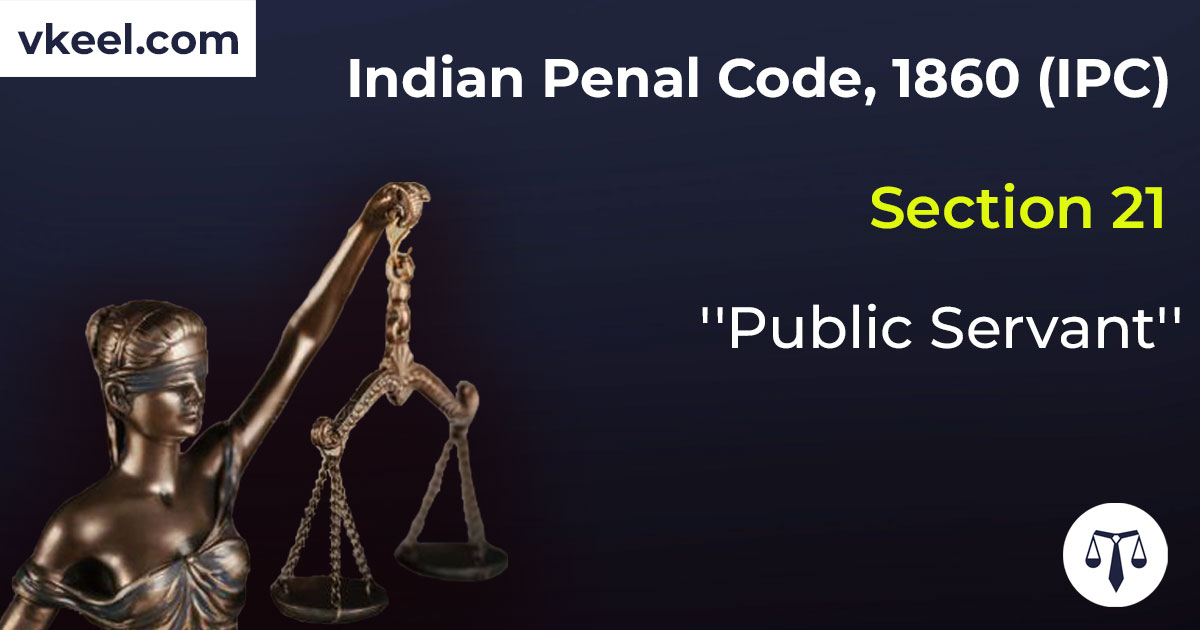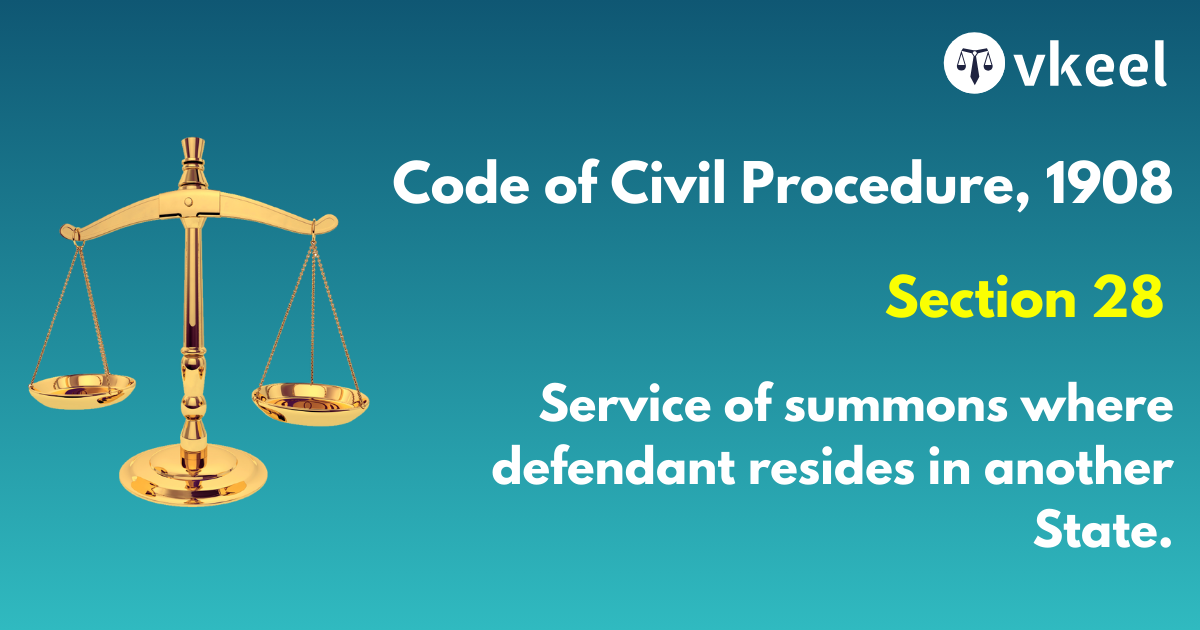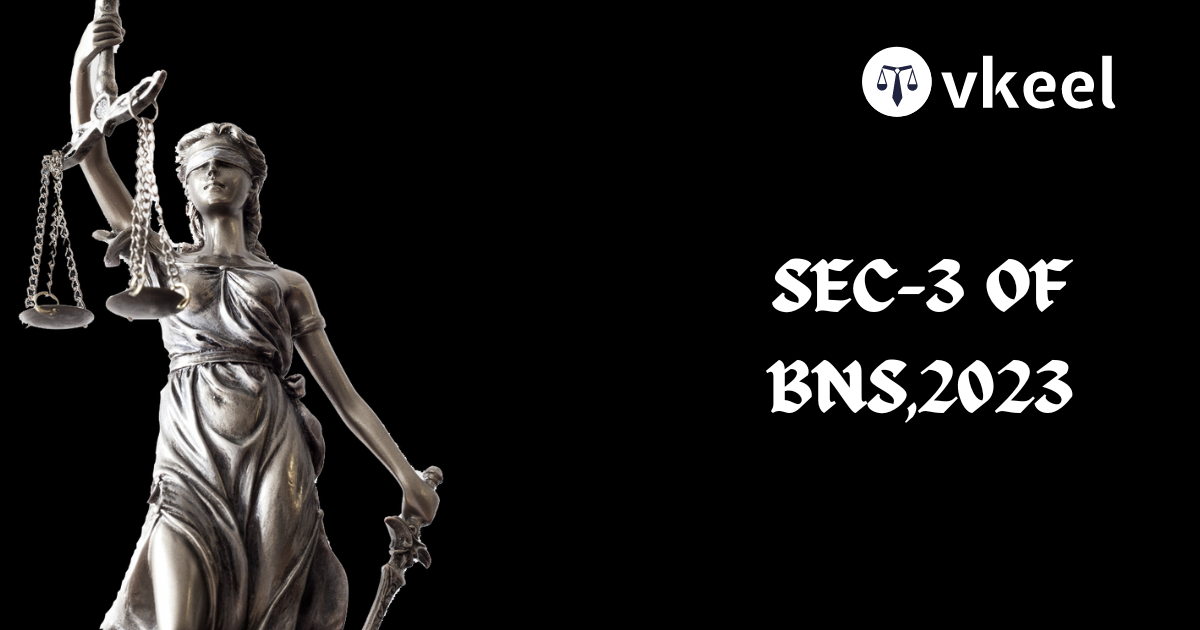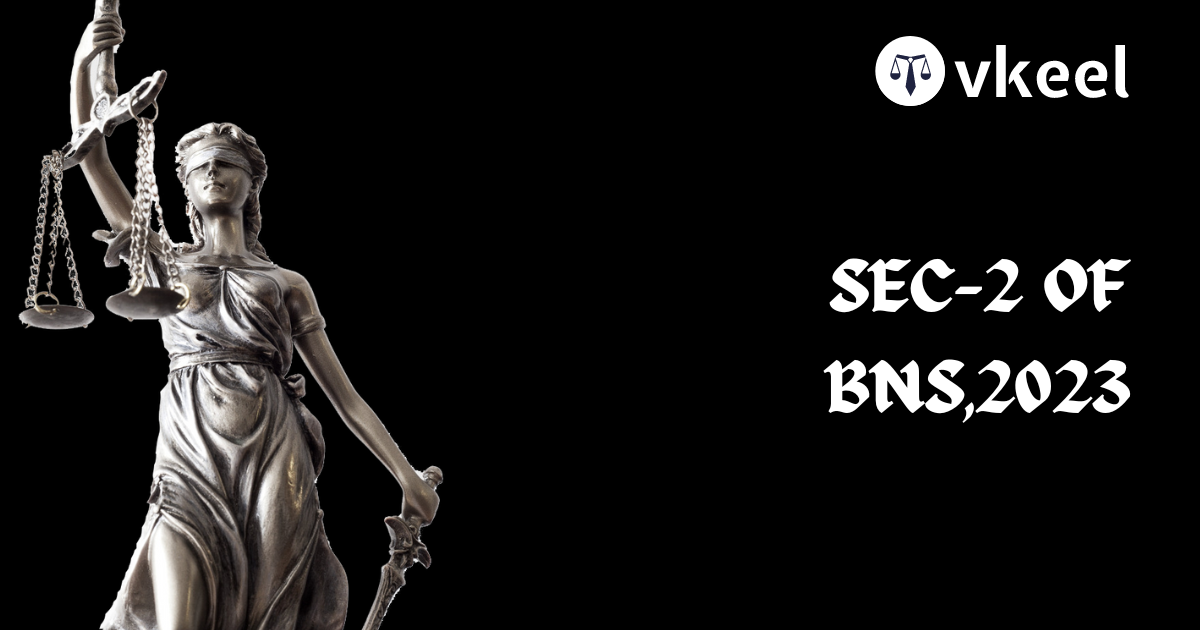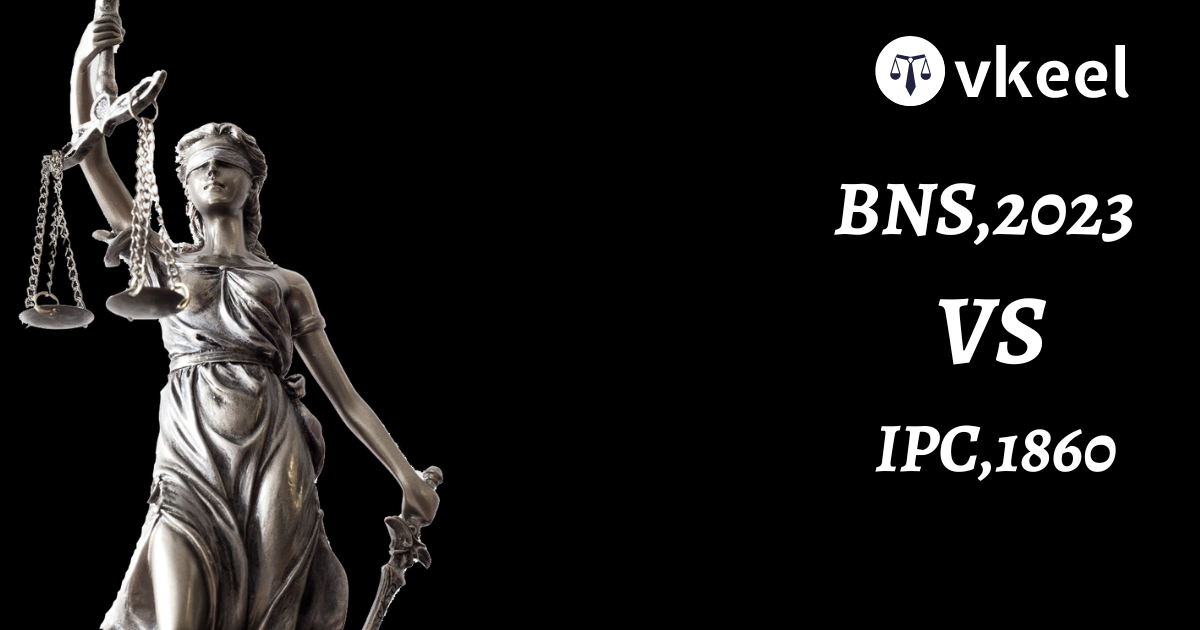Section 21 Indian Penal Code 1860 (IPC) – “Public Servant”
By Vkeel Team
Table of Contents
Description
“Section 21 Indian Penal Code 1860 (IPC)”
The words public servant denote a person falling under any of the descriptions hereinafter following, namely:
1 *****
Second. Every Commissioned Officer in the Military, 2 [Naval or Air] Forces 3 [ 4 *** of India];
5 [Third. Every Judge including any person empowered by law to discharge, whether by himself or as a member of any body of persons, any adjudicatory functions;]
Fourth. Every officer of a Court of Justice 6[(including a liquidator, receiver or commissioner)] whose duty it is, as such officer, to investigate or report on any matter of law or fact, or to make, authenticate, or keep any document, or to take charge or dispose of any property, or to execute any judicial process, or to administer any oath, or to interpret, or to preserve order in the Court, and every person specially authorised by a Court of Justice to perform any of such duties;
Fifth. Every juryman, assessor, or member of a panchayat assisting a Court of Justice or public servant;.
Sixth. Every arbitrator or other person to whom any cause or matter has been referred for decision or report by any Court of Justice, or by any other competent public authority;
Seventh. Every person who holds any office by virtue of which he is empowered to place or keep any person in confinement;
Eighth. Every officer of 7 [the Government] whose duty it is, as such officer, to prevent offences, to give information of offences, to bring offenders to justice, or to protect the public health, safety or convenience;
Ninth. Every officer whose duty it is as such officer, to take, receive, keep or expend any property on behalf of 7[the Government], or to make any survey, assessment or contract on behalf of 7[the Government], or to execute any revenue-process, or to investigate, or to report, on any matter affecting the pecuniary interests of 7the Government, or to make, authenticate or keep any document relating to the pecuniary interests of 7[the Government], or to prevent the infraction of any law for the protection of the pecuniary interests of 7[the Government] 8***;
Tenth. Every officer whose duty it is, as such officer, to take, receive, keep or expend any property, to make any survey or assessment or to levy any rate or tax for any secular common purpose of any village, town or district, or to make, authenticate or keep any document for the ascertaining of the rights of the people of any village, town or district;
9 [Eleventh. Every person who holds any office in virtue of which he is empowered to prepare, publish, maintain or revise an electoral roll or to conduct an election or part of an election;]
10 [Twelfth. –Every person —
(a) in the service or pay of the Government or remunerated by fees or commission for the performance of any public duty by the Government;
(b) in the service or pay of a local authority, a corporation established by or under a Central, Provincial or State Act or a Government company as defined in section 617 of the Companies Act, 1956 (1 of 1956).]
Illustration
A Municipal Commissioner is a public servant.
Explanation 1. Persons falling under any of the above descriptions are public servants, whether appointed by the Government or not.
Explanation 2. –Wherever the words public servant occur, they shall be understood of every person who is in actual possession of the situation of a public servant, whatever legal defect there may be in his right to hold that situation.
9 [Explanation 3. –The word election denotes an election for the purpose of selecting members of any legislative, municipal or other public authority, of whatever character, the method of selection to which is by, or under, any law prescribed as by election.]
11**** *
STATE AMENDMENT
Rajasthan Amendment of Section 21, Central Act 45 of 1860.—In section 21 of the Indian Penal Code, 1860 (Central Act 45 of 1860), in its application to the State of Rajasthan, after clause Twelfth, the following new clause shall be added, namely:-
Thirteenth. -Every person employed or engaged by any public body in the conduct and supervision of any examination recognised or approved under any law.
Explanation. -The expression Public Body includes.-
(a) a University, Board of Education or other body, either established by or under a Central or State Act or under the provisions of the Constitution of India or constituted by the Government: and
(b) a local authority..
[Vide Rajasthan Act 4 of 1993, s. 2]
Introduction
Section 21 of the Indian Penal Code, 1860 (IPC) defines the term “Public servant.” It is a crucial provision that outlines the scope and ambit of public servants in India. In this article, we will explore the concept of a public servant in India in detail, with an emphasis on its interpretation and implications.
Definition of Public Servant
According to Section 21 of the IPC, a public servant is a person who holds an office by virtue of which he is authorized to perform any public duty. It includes not only a person who is in the service of the Government but also any person who is authorized by the Government to perform any public duty. The term “public duty” means a duty in the discharge of which the general public has an interest, such as the duty of a police officer, a judge, or a revenue officer.
Interpretation of the term “Public Servant”
The term “public servant” is to be interpreted broadly, and it includes not only the officers and employees of the Government but also any person who is authorized by the Government to perform public duties. The term “public servant” is not limited to the persons employed by the Government but includes any person who is authorized to act as a public servant. The authorization may be express or implied. Therefore, a private person who performs a public duty can also be considered a public servant.
Duties of a Public Servant
The primary duty of a public servant is to serve the public interest. Public servants are expected to act with integrity, impartiality, and objectivity in the discharge of their duties. They must ensure that the rights of the citizens are protected, and justice is done in a fair and transparent manner. Public servants must also comply with the rules and regulations governing their conduct and must refrain from engaging in any activity that is illegal or unethical.
Liability of Public Servants
Public servants are held to a higher standard of accountability than private individuals. They are expected to perform their duties with honesty, diligence, and efficiency. If a public servant fails to discharge his duties in a proper manner, he can be held liable for criminal or civil misconduct.
Under the IPC, a public servant can be held liable for offences such as corruption, bribery, and abuse of power. The Prevention of Corruption Act, 1988, provides for the prosecution of public servants for accepting bribes or misusing their official position for personal gain.
Conclusion
In conclusion, Section 21 of the IPC defines the term “public servant” and outlines the duties and responsibilities of public servants in India. Public servants are entrusted with the responsibility of serving the public interest and must act with integrity, impartiality, and objectivity in the discharge of their duties. They are held to a higher standard of accountability than private individuals and can be held liable for criminal or civil misconduct. It is crucial that public servants discharge their duties with utmost care and diligence to ensure that justice is done and the rights of the citizens are protected.
1. Cl. First omitted by the A.O. 1950.
2. Subs. by Act 10 of 1927, s. 2 and the First Sch., for or Naval.
3. The original words of the Queen while serving under the Government of India, or any Government have successively been amended by the A.O. 1937, the A.O. 1948 and the A.O. 1950 to read as above.
4. The words of the Dominion omitted by the A.O. 1950.
5. Subs. by Act 40 of 1964, s. 2, for cl. Third.
6. Ins. by s. 2, ibid.
7. Subs. by the A.O. 1950, for the Crown which had been subs. by the A.O. 1937, for Government.
8. Certain words omitted by Act 40 of 1964, s. 2.
9. Ins. by Act 39 of 1920, s. 2.
10. Subs. by Act 40 of 1964, s. 2, for Cl. Twelfth.
11. Explanation 4 omitted by Act 39 of 1920, s. 2
Desctiption Source: indiacode
Disclaimer:
The information provided in the article is for general informational purposes only, and is not intended to constitute legal advice or to be relied upon as a substitute for legal advice. Furthermore, any information contained in the article is not guaranteed to be current, complete or accurate. If you require legal advice or representation, you should contact an attorney or law firm directly. We are not responsible for any damages resulting from any reliance on the content of this website.

